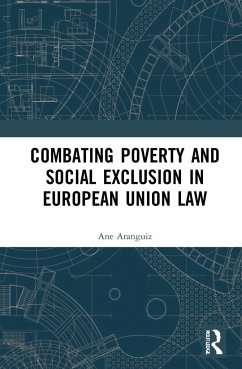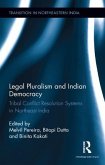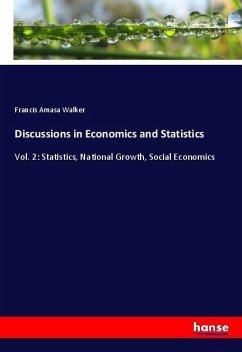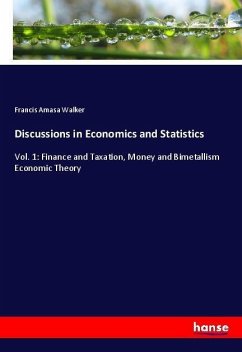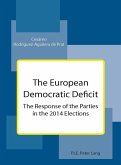This book examines the potential role of European Union law in combating poverty and social exclusion in the European Union.
Anti-poverty strategies have been part of the European Union agenda for decades. Most saliently, over a decade ago, the EU's Member States pledged to lift 20 million people out of poverty. In spite of this commitment, the EU did not even meet a quarter of this target, and over 113 million people still were at risk of poverty and social exclusion by the end of 2020. This book addresses the incongruence between a quite developed EU policy strategy and a well-embedded legal objective on the one hand, and the lack of direct legal action on the other. Analysing the role of social policy instruments, fundamental rights, and the constitutional framework of the European Union, it makes a detailed case for a contribution of EU law to the policy objective of combating poverty and social exclusion.
Drawing on work in law, politics, social policy and economics, this book will interest scholars and policymakers in the areas of EU law, labour and social security, human rights, political science and social and public policy.
The Open Access version of this book, available at www.taylorfrancis.com, has been made available under a Creative Commons Attribution (CC-BY) 4.0 license.
Anti-poverty strategies have been part of the European Union agenda for decades. Most saliently, over a decade ago, the EU's Member States pledged to lift 20 million people out of poverty. In spite of this commitment, the EU did not even meet a quarter of this target, and over 113 million people still were at risk of poverty and social exclusion by the end of 2020. This book addresses the incongruence between a quite developed EU policy strategy and a well-embedded legal objective on the one hand, and the lack of direct legal action on the other. Analysing the role of social policy instruments, fundamental rights, and the constitutional framework of the European Union, it makes a detailed case for a contribution of EU law to the policy objective of combating poverty and social exclusion.
Drawing on work in law, politics, social policy and economics, this book will interest scholars and policymakers in the areas of EU law, labour and social security, human rights, political science and social and public policy.
The Open Access version of this book, available at www.taylorfrancis.com, has been made available under a Creative Commons Attribution (CC-BY) 4.0 license.
Winner of the 2023 Walter Leën Prize for Social Law
"Combating poverty and social exclusion still doesn't get the necessary attention and the results of this fight still remain very insufficient. The question whether EU law can play a role is a very relevant and important one. The author delivers a very complete and well elaborated overview of the main elements of the broad context and the instruments which can be used in the Union's policy objectives to reduce or eradicate poverty and social exclusion. This book can be seen as a "Handbook" for anyone (politicians, organisations and institutions, administrations) who cares about the social aspects of European construction". Bernard Hubeau, University of Antwerp and the University of Brussels, Belgium.
"By combining social policy and law, this book offers an innovative contribution on the question of how EU law could fulfil the European policy objective of combating poverty and social exclusion. The proposals of legal instrument that the author has elaborated and discussed are ground-breaking and form an excellent basis for discussion in the EU." Herwig Verschueren, University of Antwerp, Belgium.
"This is a long-awaited comprehensive treatise on EU law and poverty. This is the first monograph of its kind. The book has a legal approach without turning a blind eye to the broader policy background. It covers both fundamental issues as recent concrete initiatives and ideas which may play a role alleviating poverty for EU citizens. The author deals with these matters in a critical, lively and eloquent manner, thus making a valuable contribution to the corpus of literature on the social dimension of the EU." Gijsbert Vonk, University of Groningen, the Netherlands.
"This is an insightful and thought-provoking book. Ane takes you by the hand through the fascinating journey on how EU law could contribute to fighting poverty and social exclusion. On this journey, she successfully draws from different disciplines and critically assesses important EU initiatives on the social front." Catherine Jacqueson, University of Copenhagen, Denmark.
"This book offers a strong, accessible, and well-researched analysis of Europe's socialization process. The reader will find an extremely useful overview and assessment of Europe's often underestimated legal social acquis." Bea Cantillon, University of Antwerp, Belgium.
"Combating poverty and social exclusion still doesn't get the necessary attention and the results of this fight still remain very insufficient. The question whether EU law can play a role is a very relevant and important one. The author delivers a very complete and well elaborated overview of the main elements of the broad context and the instruments which can be used in the Union's policy objectives to reduce or eradicate poverty and social exclusion. This book can be seen as a "Handbook" for anyone (politicians, organisations and institutions, administrations) who cares about the social aspects of European construction". Bernard Hubeau, University of Antwerp and the University of Brussels, Belgium.
"By combining social policy and law, this book offers an innovative contribution on the question of how EU law could fulfil the European policy objective of combating poverty and social exclusion. The proposals of legal instrument that the author has elaborated and discussed are ground-breaking and form an excellent basis for discussion in the EU." Herwig Verschueren, University of Antwerp, Belgium.
"This is a long-awaited comprehensive treatise on EU law and poverty. This is the first monograph of its kind. The book has a legal approach without turning a blind eye to the broader policy background. It covers both fundamental issues as recent concrete initiatives and ideas which may play a role alleviating poverty for EU citizens. The author deals with these matters in a critical, lively and eloquent manner, thus making a valuable contribution to the corpus of literature on the social dimension of the EU." Gijsbert Vonk, University of Groningen, the Netherlands.
"This is an insightful and thought-provoking book. Ane takes you by the hand through the fascinating journey on how EU law could contribute to fighting poverty and social exclusion. On this journey, she successfully draws from different disciplines and critically assesses important EU initiatives on the social front." Catherine Jacqueson, University of Copenhagen, Denmark.
"This book offers a strong, accessible, and well-researched analysis of Europe's socialization process. The reader will find an extremely useful overview and assessment of Europe's often underestimated legal social acquis." Bea Cantillon, University of Antwerp, Belgium.

